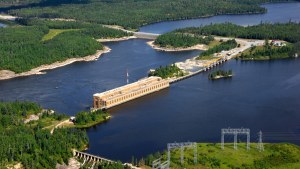The Saskatchewan Urban Municipalities Association (SUMA) will be watching on budget day March 23 as it has asked the government to eliminate the provincial sales tax (PST) on municipal construction projects.
The association has been lobbying the government to do away with the sales tax on projects as members believe it is unproductive, unjust and is causing municipalities to shrink the scope of their projects.
“Councils from across all of our sectors are generally aligned with SUMA’s advocacy – including city mayors,” explains director of advocacy services Sean McKenzie. “While the scale of projects may differ by community size, all communities face common challenges when it comes to infrastructure development and maintenance.
“We have been advocating on this in advance of the budget, and we certainly hope that the province intends to make changes, based on an improved understanding of how this is affecting Saskatchewan municipalities and their residents.”
SUMA estimates one-quarter or more of funds received from the Municipal Revenue Sharing (MRS) program are presently being returned to the province in the form of PST that is paid on construction projects.
Prior to 2017, municipalities did not have to pay PST on construction projects. They also received one point of the PST in revenue sharing from the province. However, the province made several changes, including removing the exemption for construction. Revenue sharing was also changed to .75 of a point of PST.
Data collected by SUMA indicates medium-sized cities in Saskatchewan returned 24 to 39 per cent of their total MRS back to the province in the form of PST on construction projects in 2021. The City of Yorkton paid approximately $1 million on its infrastructure projects, and for the City of Prince Albert, the total was $2.8 million.
From 2017 to 2022, MRS grew from about $258 million to $263 million, or two per cent, while overall inflation increased by about 12 per cent. That means between the addition of PST on construction and the unaccounted pressures of inflation, municipalities are receiving 30 to 40 per cent less than they did in 2017.
When the exemption of PST on construction projects was removed, Saskatchewan’s municipalities raised concerns over the additional costs and requested a return to the original state of affairs. Since then, inflation and costs have increased dramatically, further impacting already limited budgets of municipalities.
For those cities undertaking major infrastructure projects, like the City of Prince Albert, the percentage of funding returned to the province through PST on construction projects is anticipated to rise substantially.
The last couple of years have seen “unprecedented” cost increases of up to 30 per cent for some projects, says McKenzie, which has compounded the costs municipalities were already paying for infrastructure builds.
SUMA maintains the situation has forced communities to change or shrink their builds, or come up with hundreds of thousands, if not millions of dollars in additional funding, as shared federal-provincial infrastructure grants leave any cost overruns to the municipalities to pay.
“The combination of largely stagnant revenue sharing and a newfound PST on construction projects has substantially reduced municipal spending power,” says McKenzie.
SUMA, which represents all the cities, towns, villages, resort villages and northern municipalities in Saskatchewan, recently stepped up its advocacy efforts in response to the greater inflationary pressures being felt by municipalities.
Many had submitted grant applications under the Investing in Canada Infrastructure Program prior to COVID, but couldn’t proceed with building until 2022. Because the maximum amounts federal and provincial governments will provide are locked in when the grants are signed, municipalities must bear the entire cost of inflation themselves.
As a result, municipalities are either having to shrink the scope of their project, potentially building infrastructure that will need to be replaced sooner or augmented with other builds to meet a community’s growing needs, or faced with increasing property taxes because that’s their only other source of income.
McKenzie says municipalities build and maintain about 60 per cent of the infrastructure in Canada but have the fewest revenue tools of any order of government.
As a result, Saskatchewan cities, which are finalizing their municipal budgets and preparing for the 2023 construction season, are feeling the pinch of PST on municipal construction projects.
Lloydminster Mayor Gerald Aalbers, who is vice-president of cities for SUMA and chair of the association’s city mayors’ caucus, says local governments are responsible for building a large chunk of public infrastructure and construct and maintain projects through government grants like the MRS program.
“We are returning a significant portion of this funding through PST on municipal construction, funding that could instead be used to enhance municipal services and limit property tax increases.”
The issue was discussed recently during a virtual meeting of the city mayors’ caucus which brought together representatives from Saskatchewan’s 16 cities to discuss issues of common concern and project a strong, unified voice on the most pressing and important local and provincial issues they are facing.








Recent Comments
comments for this post are closed